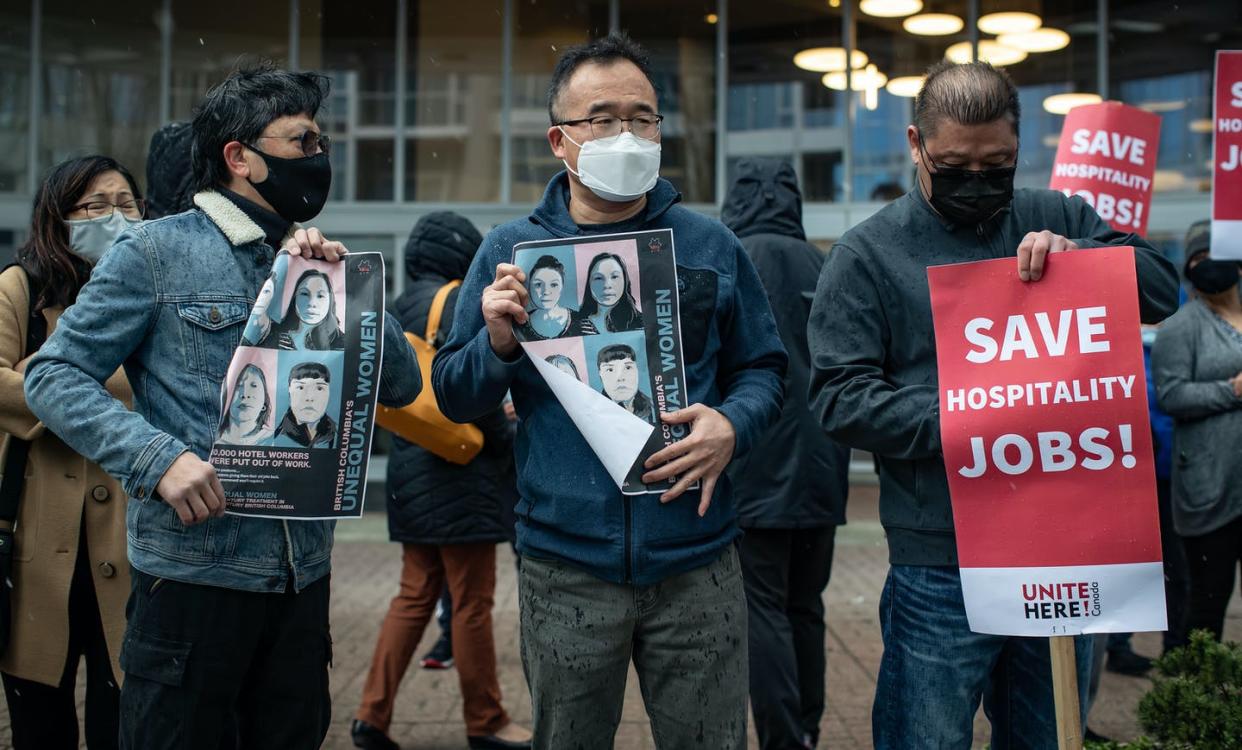Laid-off workers feel they've lost a sense of control due to COVID-19

Do you sometimes feel like you’re being pushed around in life?
The sense of control is a fundamental human goal. Possessing it is better than believing that fate or other powerful forces determine the outcomes in your life. And it provides a protective shield for mental health.
Stressors can erode the sense of control — and 2020 was the motherlode. Job disruption is among the most potent threats. On that score, it doesn’t get much worse than April 2020. The unemployment rate spiked at 13 per cent, with total unemployment increasing by almost 1.3 million from February to April. Almost all of the newly unemployed — 97 per cent — were classified as “temporary layoffs,” which means they anticipated returning to their former jobs once the shutdown restrictions were lifted.

How did this holding pattern affect the sense of control? With the help of the Angus Reid Forum, we surveyed thousands of Canadians before and during the pandemic. Our sample was designed to provide a broadly representative portrait of Canadians across socio-economic characteristics, job sectors, occupations and skill levels.
To measure perceived control, we asked their level of agreement or disagreement with statements that included “you have little control over the things that happen to you” and “you often feel helpless in dealing with problems of life.”
Compared to Canadians who remained stably employed, those who became temporarily laid off felt more powerless. And those with a greater sense of control were more optimistic about being recalled back to work or about finding a new job if the layoff became permanent.
Personal experiences
To understand these survey results, we conducted in-depth interviews with people who had been temporarily laid off. A theme emerged: the effects of chronic uncertainty on problem-solving.
For Oliver, a fundraising manager, being laid off was “beyond stressful” because “there were so many variables that it felt impossible to plan.” He continued:
“The feeling of uncertainty was coupled with losing the concrete pillars in my life. A lot of the stress comes from the inability to actually address those concerns. It’s still difficult to plan. You feel like you’re spinning your wheels.”
“The first few days were just shock,” explained Kendra, a business development manager. “I’ve lost jobs before, but it wasn’t really that sense of agency, that this is something in my control.” This loss of control intersected with her job search efforts:
“With every interview, with every networking thing that I went to, it was more of a ‘wait and see’ approach. There was a sense of powerlessness, of being stuck in the same place.”
The uncertainty was crushing for Greg, who worked in business event sales:
“Not having a schedule, interacting with people like I used to, using my brain on a daily basis, on top of that not eating or sleeping well. I feel completely out of control. It feels like I’m on this downward spiral and it’s just affecting everything.”
When we asked Ellen, a manager in technical safety, to rate the stress of being laid off on a scale from one to five, she replied:
“It was like a seven! All I could do at the beginning was sit on a stool at work and shake, and cry. It was such an unknown and scary feeling for me because nothing like that had ever happened to me. In a stressful situation, I’m usually kind of like the cool cucumber. This one, I definitely was not.”
Silver linings
While we heard countless tales about the loss of control, many also identified a silver lining in the experience: a mindset shift.

“The only control I had was of my own personal surroundings,” said Shawn, an aircraft maintenance engineer. “I started to learn how to simplify things and not get stuck on timelines and deadlines. Things will just happen. I have learned a lot from it in terms of just relaxing.”
Some expressed an “it is what it is” attitude mixed with proactive problem-solving. Earl, an architectural technologist, described the uncertainty: “Every day, when I woke up out, I had to breathe.” He wondered: “Am I going to get a pink slip today?”
Eventually, he redefined the situation. “That’s the hand I was dealt with,” he said, “so you have to play your cards the best you can.” He decided to develop his skills, asserting that “when something’s taken from you outside of your control, you’re going to try to get it back and be a little innovative in how you do it. That was the only way I could fight back.”
Peter, an engineering technician, echoed this can-do attitude: “I come from the stock that doesn’t like to sit around and whine about stuff.” He’s playing the same card game as Earl: “The hand you’re dealt is the hand you’re dealt. You play it.” And, when the temporary layoff started to feel permanent, Peter decided to start his own business “to have a little more control.”
“It’d be nice to row my own boat! It’s a Maritimer term.”
He added: “I’ll take my fate into my own hands. I can’t blame you, can’t blame anyone else … it’s all on me.”
Ryu Won Kang, an undergraduate studying biochemistry and immunology at the University of Toronto, co-authored this article.
This article is republished from The Conversation, a nonprofit news site dedicated to sharing ideas from academic experts. It was written by: Scott Schieman, University of Toronto.
Read more:
Journalism jobs are precarious, financially insecure and require family support
How and why companies lay off employees affects future success
Scott Schieman receives funding from the University of Toronto COVID-19 Action Initiative.


